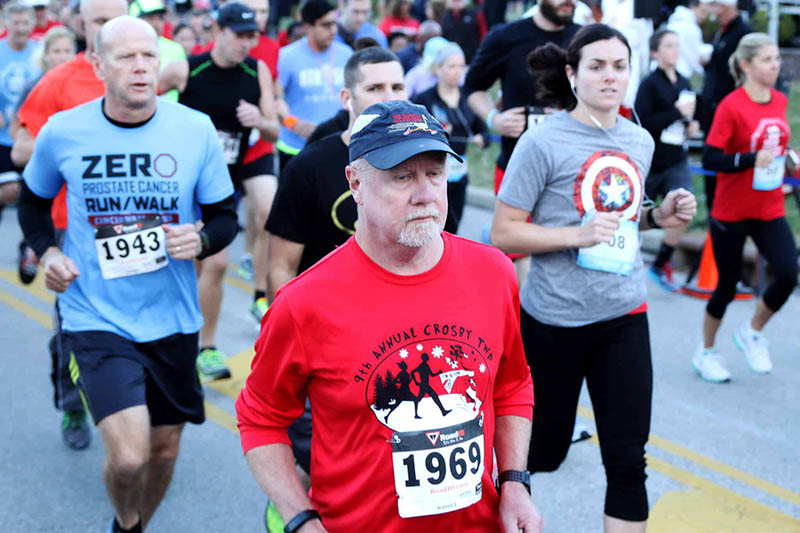Nocturia Keeping You Awake? 4 BPH Health Risks
Nocturia – the frequent need to pee at night – is among the most common symptoms of an enlarged prostate (BPH). Learn why it happens and what you can do to help.

The number of men expected to be diagnosed with prostate cancer this year could nearly populate the entire city of Fort Lauderdale. That image doesn’t exactly conjure a day at the beach.
But it does have a silver lining, which is this: All men do have the ability to limit their risks and identify symptoms of prostate disease early.
September is Prostate Cancer Awareness Month, and we’re doing our part to inform men and women of the risks and preventions of the disease – one of the most common cancers to affect men. This is why we hold our annual Gentlemen Stakes 5K walk and run in September.
This year’s event, our 12th to benefit ZERO – The End of Prostate Cancer, will take place Saturday, September 14 at Belterra Park Cincinnati’s racetrack. We’re aiming to attract 1,000 runners and walkers and raise $125,000.
And we especially hope to raise awareness. Here are some essential facts about prostate cancer and what it means to those diagnosed. We hope you share them.
One-in-Nine Diagnosed
Prostate cancer occurs when cells grow abnormally and uncontrollably, forming a tumor. Almost all prostate cancers develop from the cells that produce prostatic fluid, a component of semen.
The prostate is a small gland, about the size of a walnut, but the odds of cancer are relatively high. Nearly 175,000 men are expected to be diagnosed in 2019, and one in nine will be diagnosed sometime in his lifetime.
It’s also a mature man’s disease, primarily. The average age of diagnosis is 66, and prostate cancer is rare among men younger than 40.
What it Means, and 4 Action Steps
Despite the high risk of developing prostate cancer, just one in 41 men die from it. And if caught early, prostate cancer has a five-year survival rate of 98%.
Depending on the stage, treatment usually involves radiation, surgical removal of the prostate or active surveillance. Men who have undergone treatment may experience erectile dysfunction, which could be temporary.
Here’s what you can do, for yourself and others who may be at risk of prostate cancer.
Lastly, talk about prostate cancer and prostate health. There’s a good chance most men you know will be eager to share in the conversation.
Virtual Assistant
I need help with ‘Billing Questions’
What number should I call to pay my bill?
If your bill is from The Urology Group, please call (513) 841-7474 to pay your bill.
If your bill is from The Urology Center, please call (513) 841-7475 to pay your bill.
If you would like us to call you to set up an appointment, please click here to request a call back.
If you would like to call us, please call
513-841-7400
to speak with a representative.
Our hours are:
Monday-Friday: 7:30am – 5:00pm
please call us at:
Our hours are:
Monday-Friday: 7:30am – 5:00pm
please call us at:
Our hours are:
Monday-Friday: 7:30am – 5:00pm
please call us at:
Our hours are:
Monday-Friday: 7:30am – 5:00pm
please call us at:
Our hours are:
Monday-Friday: 7:30am – 5:00pm